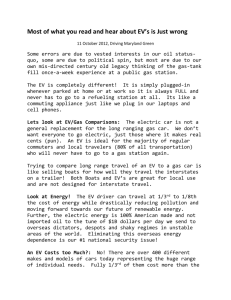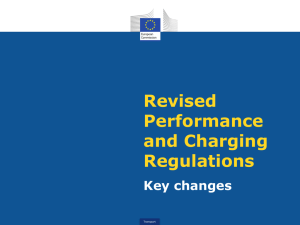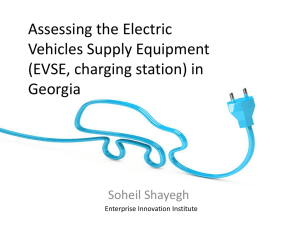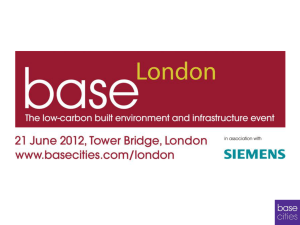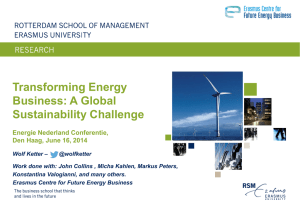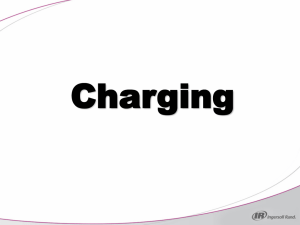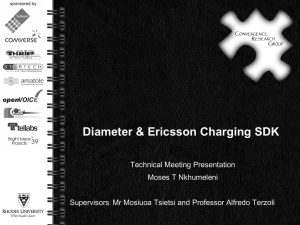An Optimized EV Charging Model Considering TOU price and SOC
advertisement
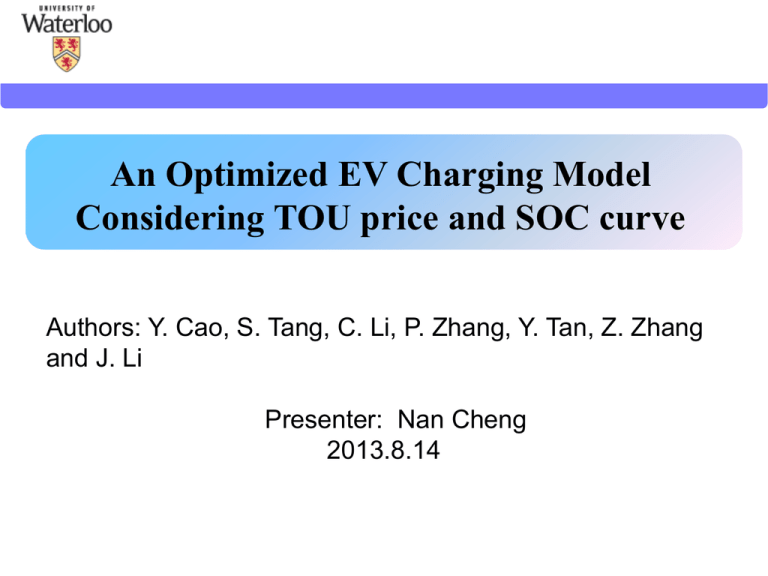
An Optimized EV Charging Model Considering TOU price and SOC curve Authors: Y. Cao, S. Tang, C. Li, P. Zhang, Y. Tan, Z. Zhang and J. Li Presenter: Nan Cheng 2013.8.14 Outline Introduction Optimal Model for EV Charging Case Study Conclusion Introduction (1) EV charging loads increase in the near future – Negative impacts on stability – Risk system operations and management – 200 million EV in China in 2050 with charge load 330 MkW. Three ways for EV-friendly access the power grid – V2G – Energy management equipment – Electricity pricing (Customers respond to price) 3 Introduction (2) Regulated electricity market (China) – Electricity remain unchanged once decided. – Catalog price, stepwise power tariff & time-ofuse (TOU) price – TOU price varies in different periods of a day. This paper: – Proposes an optimized charging model to adjust charging power and time based on TOU and SOC – Reduce the cost of costumers – Balance load demand 4 Problem Description Formulate optimized charging scheme with a specific starting time and ending time – Consider TOU price – Consider SOC curve to determine the charging constraints – Aim to minimize cost + peak clipping & valley filling Objective Function – – – – : starting time of charging : duration of charging : unit price at time t : charging power at time t Constraints – – – : maximum power set by EV user : maximum power EV charger can output : maximum allowed charging power to protect the battery based on the current state of charge. Constraints SOC v.s. maximum charging power Algorithm (1) The optimized model is discretized: T is divided into N periods, each with length . Algorithm (2) A heuristic algorithm is proposed - i and j are ascending sorted sequences, i.e., - Energy q is optimal step for the algorithm, the corresponding power step . Algorithm (3) Case Study - Setting Charging curve Distribution of start time TOU price Initial SOC distribution: Case Study – Results (1) Single EV Multiple EVs Case Study – Results (2) Conclusions • Response to TOU can reduce EV charging cost and meet the demand response requirements in regulated market. 15

